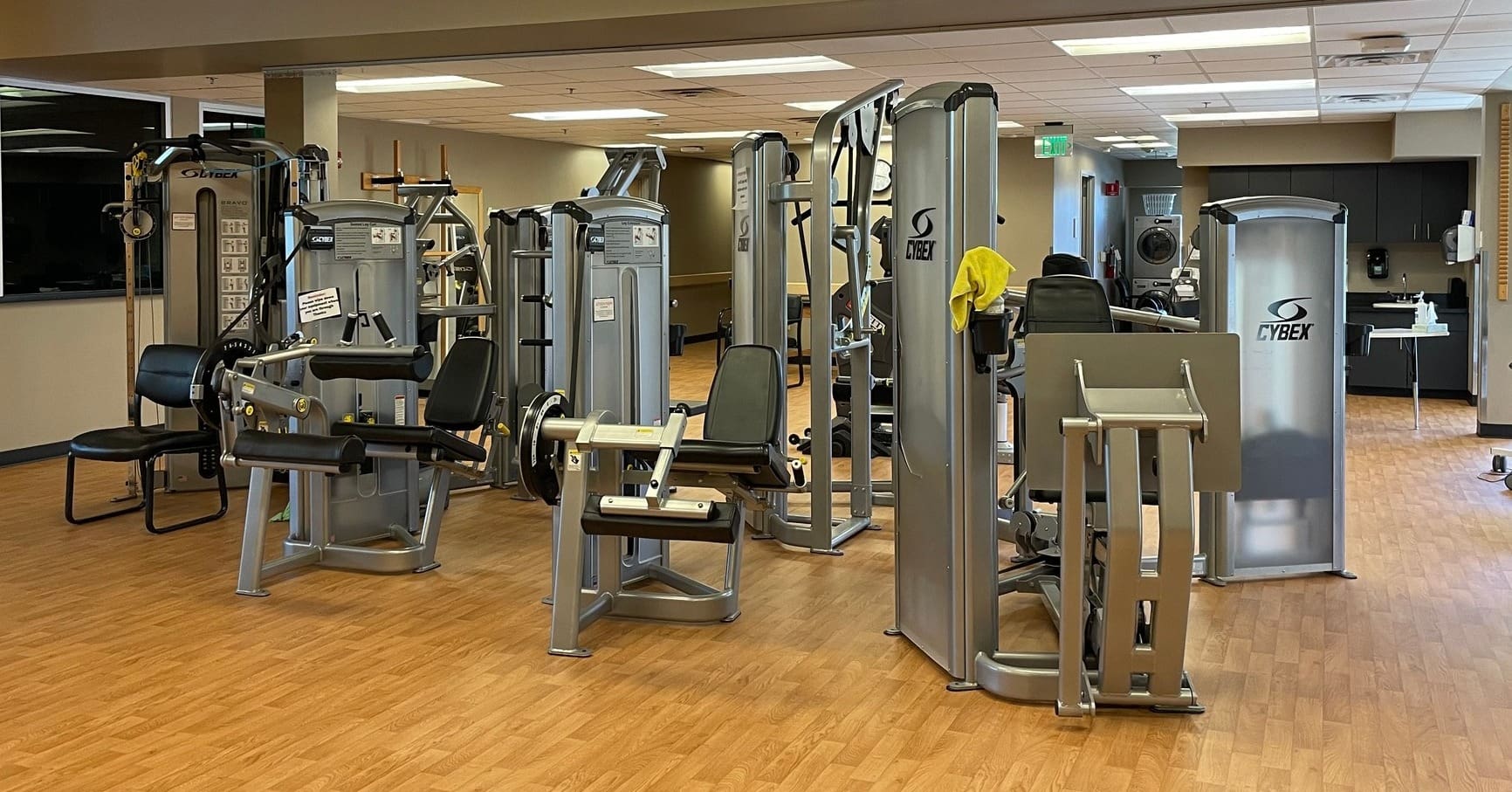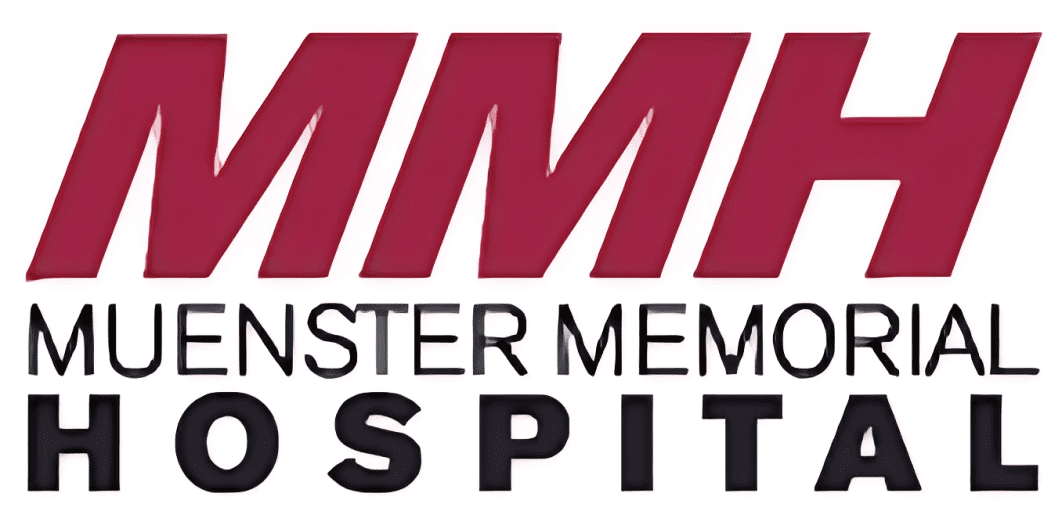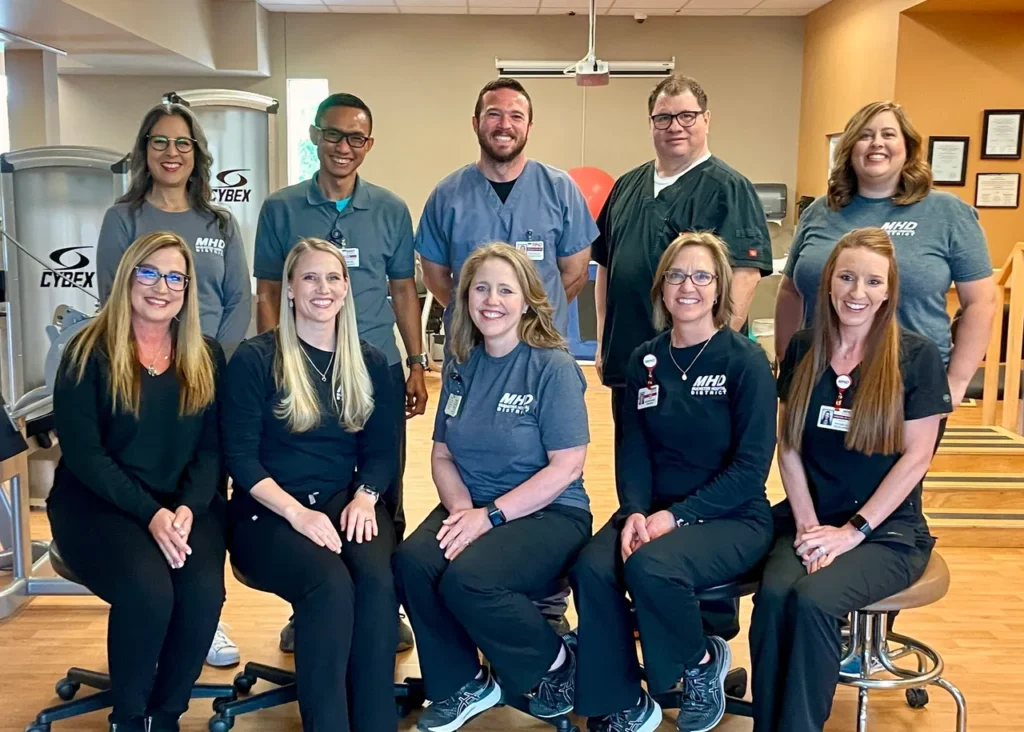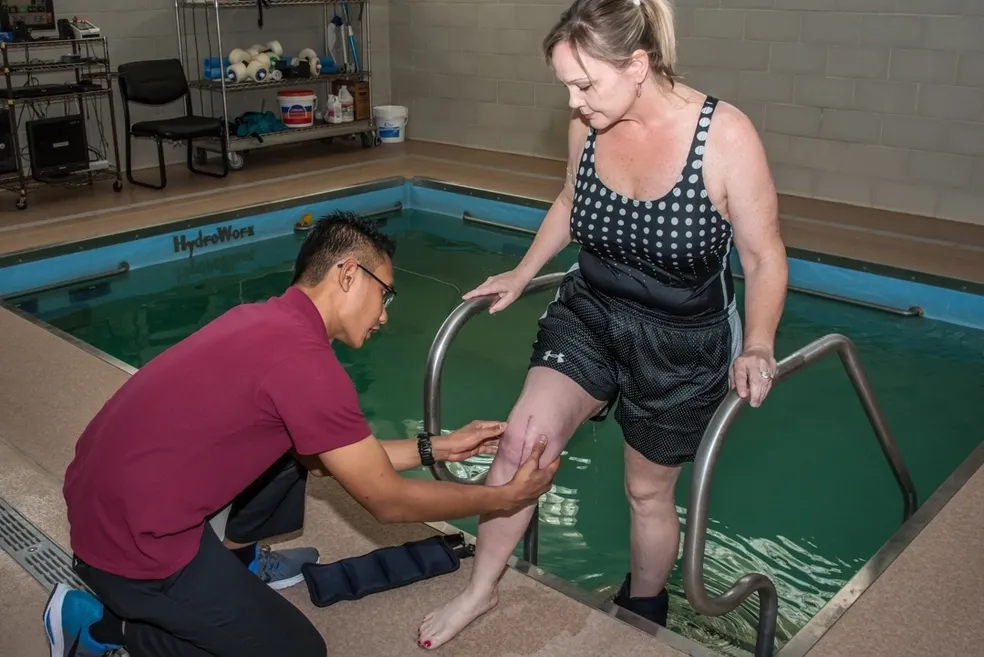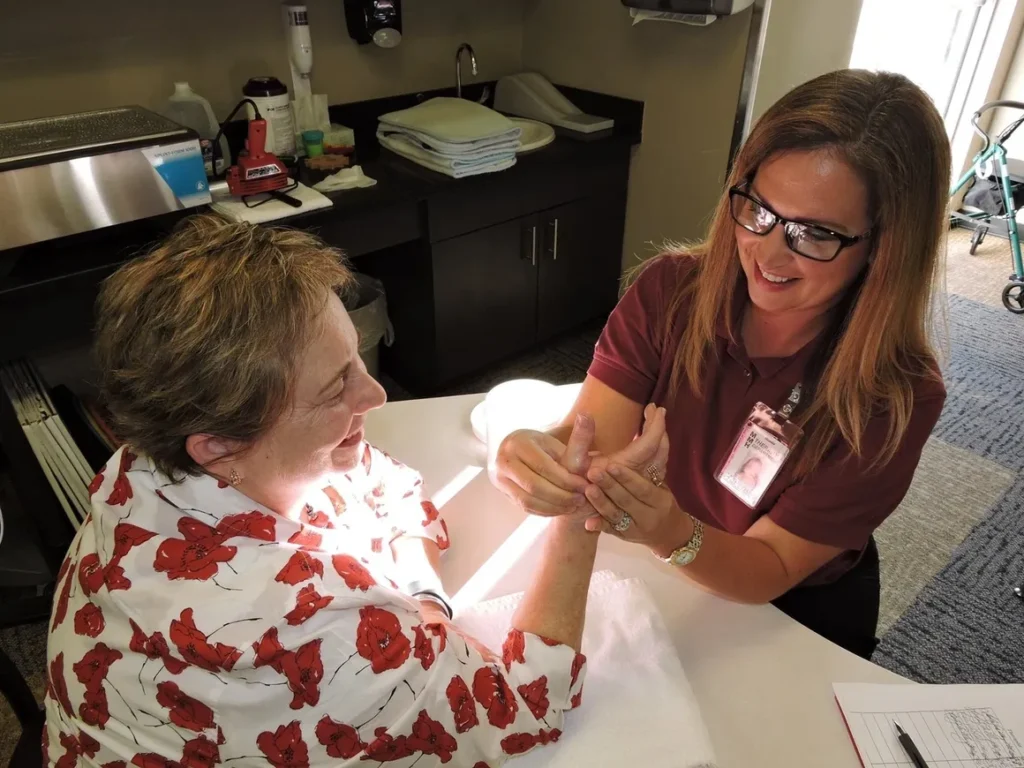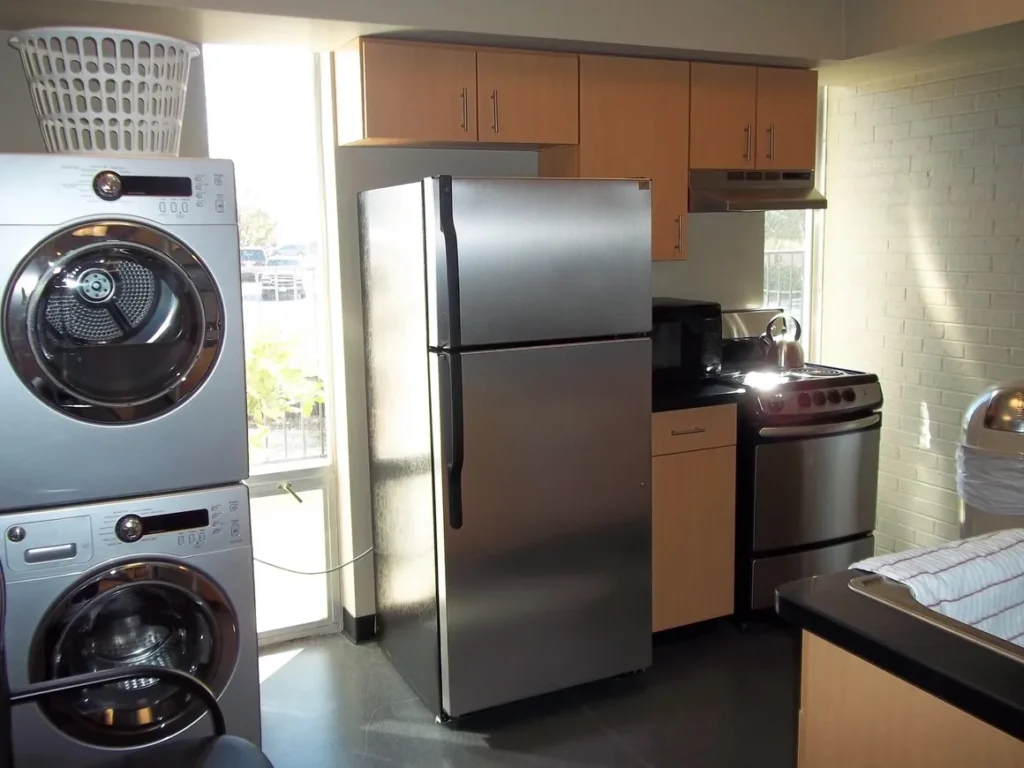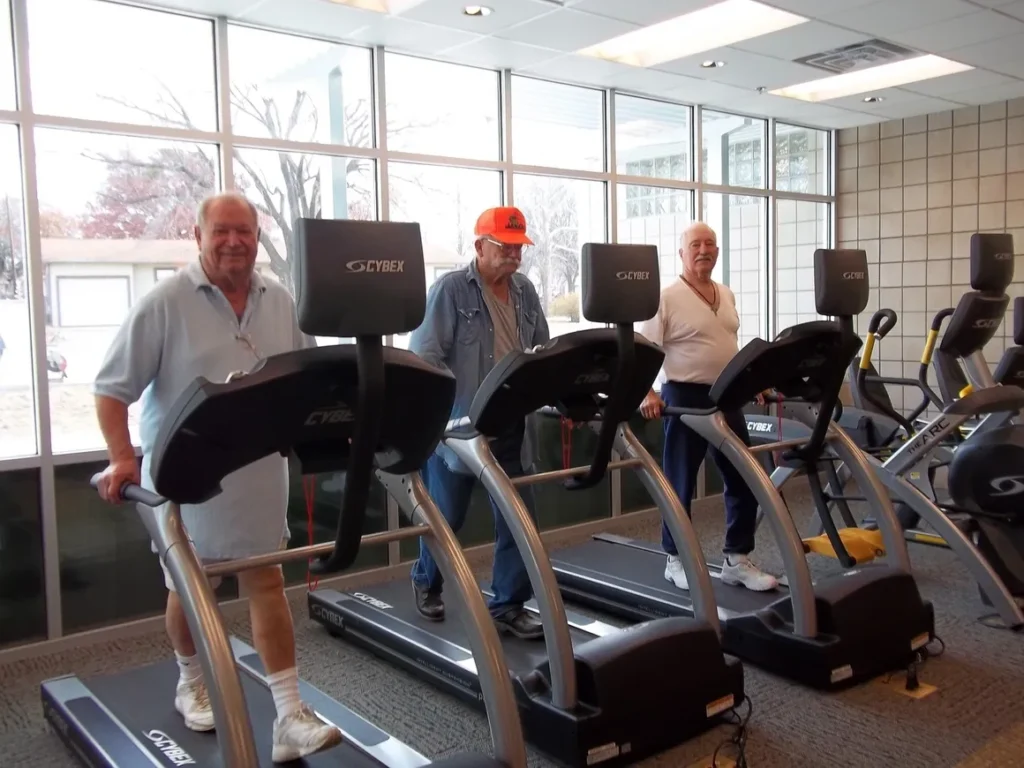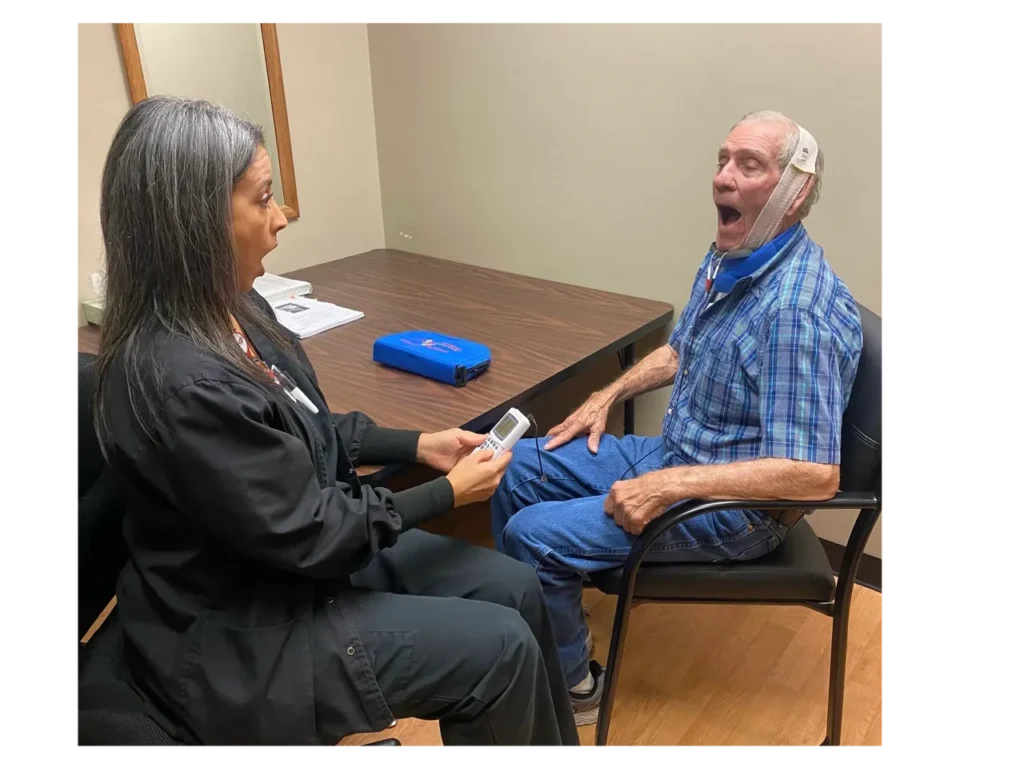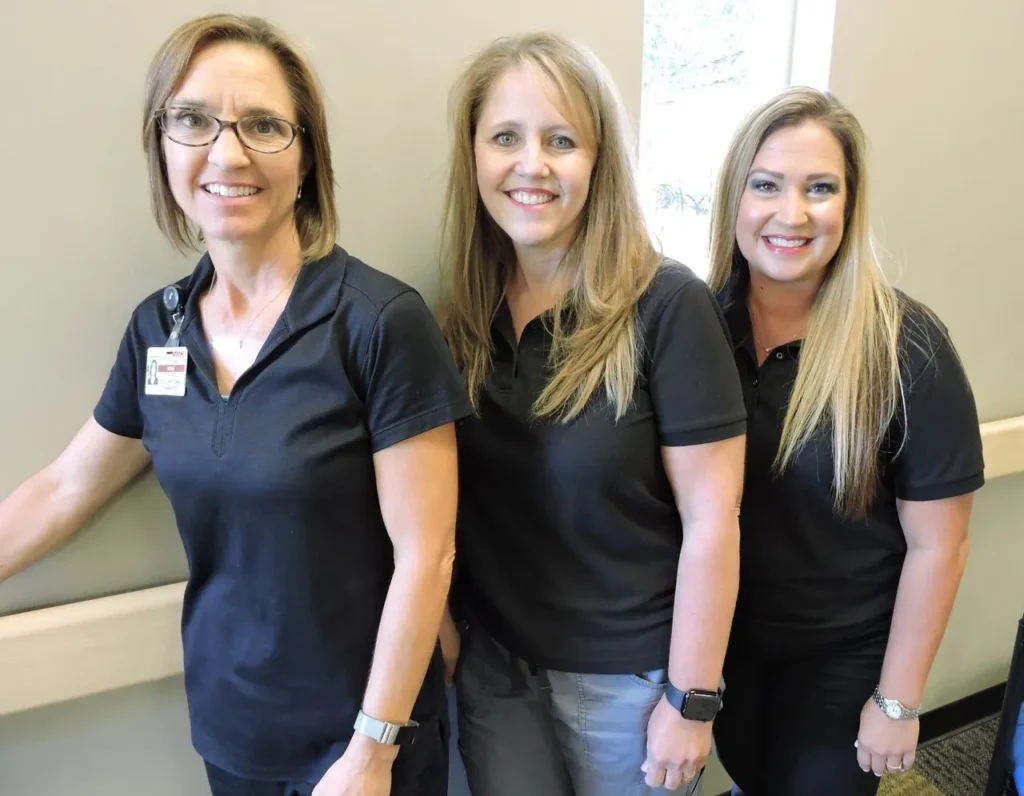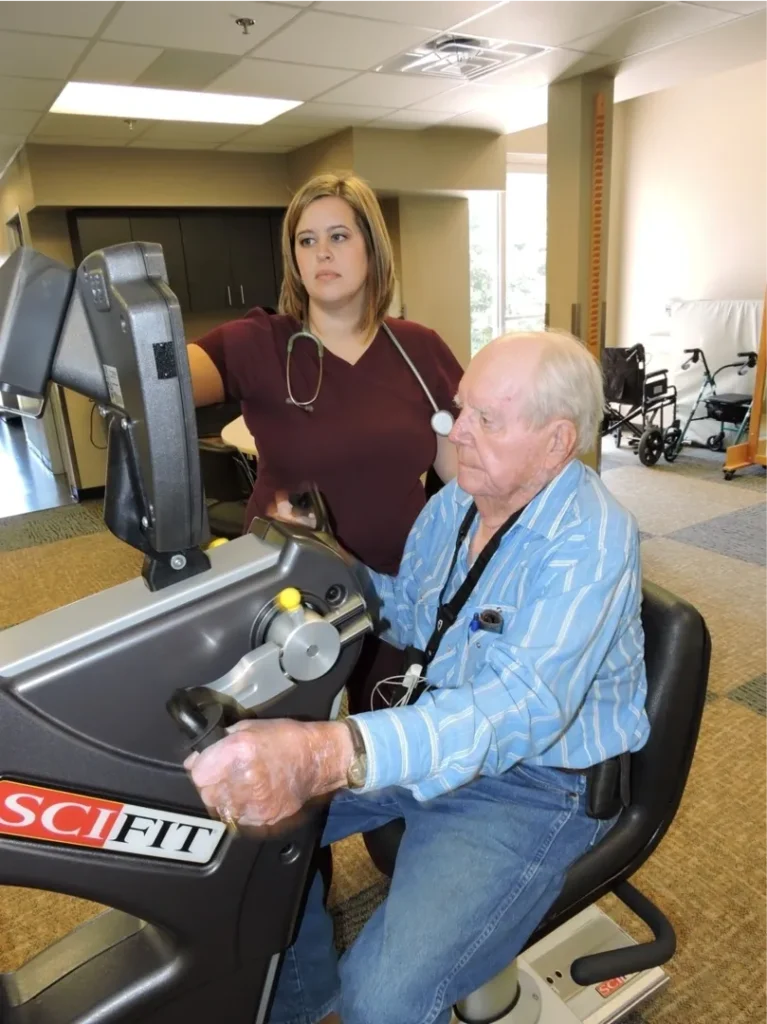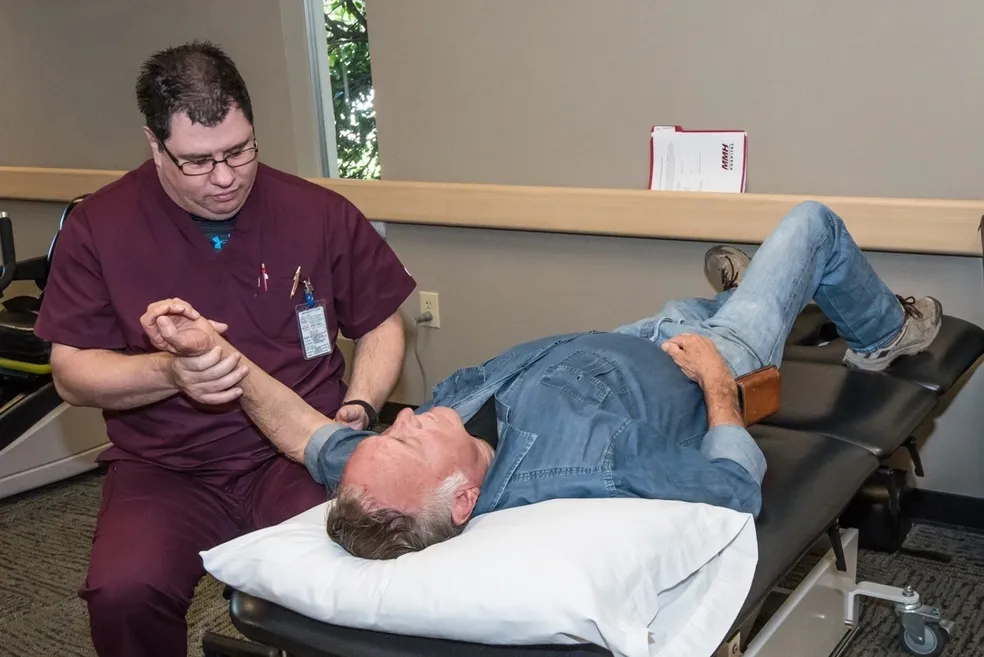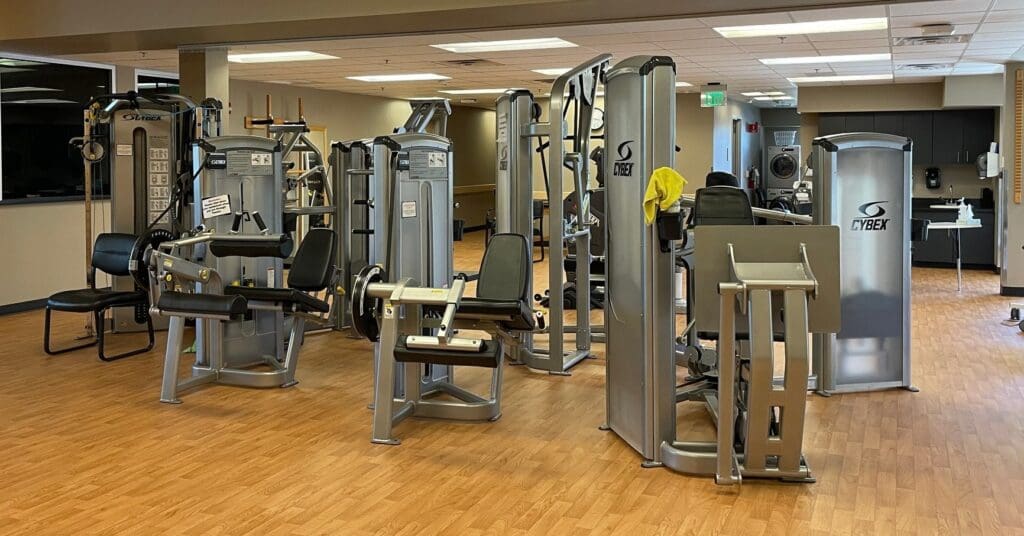Therapy Services 940-759-6198
Physical Therapy
Physical Therapy
Our highly trained staff of physical therapists work with patients to help decrease pain, improve strength, balance, and range of motion. We treat patients from pediatrics to geriatrics specializing in orthopedics, sports injuries, and stroke recovery.
Modalities We Offer
Aquatic Therapy
Mechanical Traction
Dry Needling- insertion of needles into muscles to relieve muscle spasms
E-Stim (muscular electrical stimulation)
Massage
Ultrasound
Taping
LSVT BIG Program
Paraffin
Heat therapy
How do I get an appointment?
Physical therapy requires a prescription from a doctor and is covered by most insurance plans. To schedule your appointment bring your prescription to our therapy department or have your doctor send it to our office by fax. Our office will contact you notifying you of your insurance coverage and schedule your appointment.
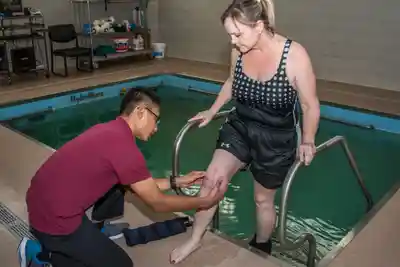
Occupational Therapy
Additional Information
Occupational therapy is therapy with the goal of assisting people in developing “skills for the job of living”. Occupational therapists work with patients to improve coordination, fine motor function and activities of daily living.
Common occupational therapy interventions include helping children with disabilities to participate fully in school and social situations, helping people recovering from injury to regain skills, and providing support for older adults experiencing physical and cognitive changes.
Occupational therapy services typically include:
- Customized treatment programs to improve one's ability to perform daily activities;
- Comprehensive home and job site evaluations with adaptation recommendations;
- Performance skills assessments and treatment;
- Adaptive equipment recommendations and usage training;
- Guidance to family members and caregivers.
Common users of occupational therapy include: those recovering from workplace injuries of the hand, shoulder, wrist or elbow, stroke survivors, those rehabilitating from long illnesses or surgery, traumatic brain and spinal cord injuries, amputees, children with disabilities, and those new to wheelchairs, canes, walkers and other adaptive devices.
Occupational therapists can often assist in preventing injuries by assessing worksites and advising on chair and computer keyboard placement, and OTs encourage aging in place for elders by helping identify hazards in the home.
Occupational therapists are part of a team, working closely with physical and speech therapists to keep recovery balanced.
Muenster Memorial Hospital Rehabilitation Center is equipped with an ADL (Activities of Daily Living) kitchen, complete with a stove, oven, refrigerator, cabinets, as well as a washer and dryer. Patients can practice cooking, cleaning and doing their laundry – simple tasks that can become difficult following injury or debilitating illness.
Occupational Therapy is the ultimate connection for moving patients from a state of injury and illness back to the activities that make life meaningful. Whether it is making dinner for your family, going back to work or school or returning to a hobby you enjoyed, occupational therapy can help you reach those goals.
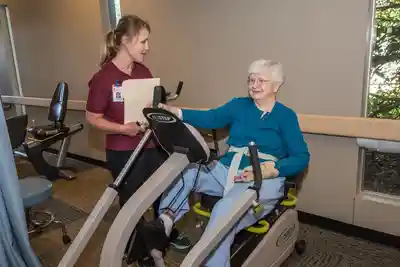
Swing bed rehab therapy
Additional Information
MMH offers the only long-‐term, hospital-‐based extended care facility in the county.
Extended Care = Skilled Nursing Facility = Swing Bed
When it comes to rehabilitation following surgery, incapacitating illness or injury, Muenster Memorial Hospital has a solid reputation for providing the care needed to get patients back on their feet and home safely.
For over a decade, Muenster Memorial Hospital has provided extended inpatient care for patients who require additional attention following a hospital stay or surgery. The facility provides full therapy services to help patients regain strength and function in preparation for a return to normal activities. Other qualifying conditions include a need for IV medications following an acute care hospital stay, additional
training or education (newly diagnosed diabetics), and
post-‐stroke or traumatic injury care and rehab.
- Palliative (or comfort) care for end-‐of-‐life patients, which focuses on pain and stress reduction, is also available, as is wound care. .
- Services are reimbursable by Medicare and some other insurance. Medicare assists for up to
100 days of care. Extended care (sometimes referred to as “swing bed”) can be utilized either short or long term. Patients may remain in extended care as long as there is a documented need for the level of care.
Adelia Wilson is the program coordinator and works closely with case managers and discharge planners at surrounding hospitals to make them aware of the service and to screen for eligible patients.
“Our facility offers many advantages for area families,” she said. “Having a loved one close to home relieves so much stress for caregivers, and the fact that the patient is staying within a hospital facility, with 24-‐hour medical monitoring, offers additional peace of mind.”
Muenster offers 18 rehab beds and a beautifully appointed rehabilitation center with state-‐of-‐ the-‐art equipment, therapy pool and a functioning kitchen that allows patients to practice activities of daily living, such as cooking and laundry, before returning home.
“The therapy services provided to extended care patients cover the gamut, from physical and occupational therapy, including hand therapy, to speech,” noted Wilson.
“The goal of our physicians, nurses and therapists is to make the patient as whole as we can possibly make them. Sometimes the time allowed for a hospital stay is just not enough.”
For more information on Muenster Memorial Hospital’s extended care program, please contact Adelia Walterscheid at (940) 759-6191.
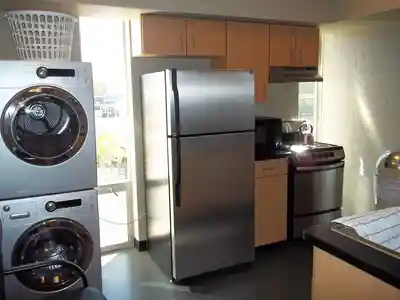
Cardiac Rehab
Our heart is our center. Our heart is life.
When illness interrupts the steady beat of the heart, emotion can wash over you like a wave. Fear, anger, confusion, sadness. Heart patients experience it all.
For example, when your cardiologist tells you to start walking for exercise, your response might be one of fear. Walk alone? With no one to watch me? What if something happens? With your diet, it might be confusion you feel. What should I include in my diet? What should I exclude? How do I even begin?
That is where cardiac rehabilitation comes in, and it just so happens that Muenster Memorial Hospital offers Phase II, or outpatient, cardiac rehabilitation through its rehabilitation center; and has since the summer of 2011.
Specially trained cardiac rehab specialists work with patients three times a week, for 12J15 weeks, as prescribed by a physician. Patients exercise on treadmills, bicycles and other aerobic equipment to gain strength and improve endurance and breathing. Heart rate and rhythm are closely monitored throughout the workout. Sessions last approximately 1 hour and are typically scheduled in the early afternoon Mondays, Wednesdays and Fridays.
Sometimes rehabilitation means more than working with the body – it means regaining confidence too.
“Our patients know we are there for them,” noted Karime Graves, MMH’s Director of Cardiac Rehab. “It gives them the confidence and security they need to push themselves to wellness.”
Another important component of life after cardiac event is education. Patients are provided with information needed to make lifestyle changes and decrease the chance of future cardiac incidents. Information provided can include nutrition, stress reduction and information on medications.
Conditions that qualify a patient for cardiac rehab include: heart attack, bypass surgery, heart valve replacement or repair, coronary stenting, transplant, stable angina and PCTA. Patients should check with their cardiologist to see if they might benefit from cardiac rehab.
After patients graduate from the rehab program, they can move into a maintenance phase, where they continue to exercise in the center without a heart monitor; or the rehab team can design a program for use in the home.
“Cardiac rehabilitation is another topJnotch service offered by Muenster Memorial Hospital to keep residents close to home for the care they need,” Karime added. “We work closely with physicians from all around the area. There is no reason to have to drive to Denton, Dallas or Sherman/Denison for this service.”

speech therapy
Speech Therapy
Our speech therapists help patients that are having difficulty with communication, swallowing disorders, and cognitive disorders. They work with patients of all ages from children with speech delays or difficulties saying words to geriatrics having difficulty remembering things or communicating due to Dementia or Alzheimers.
Modalities We Offer
- Ampcare certified
- Dysphagia therapy
- Speech therapy
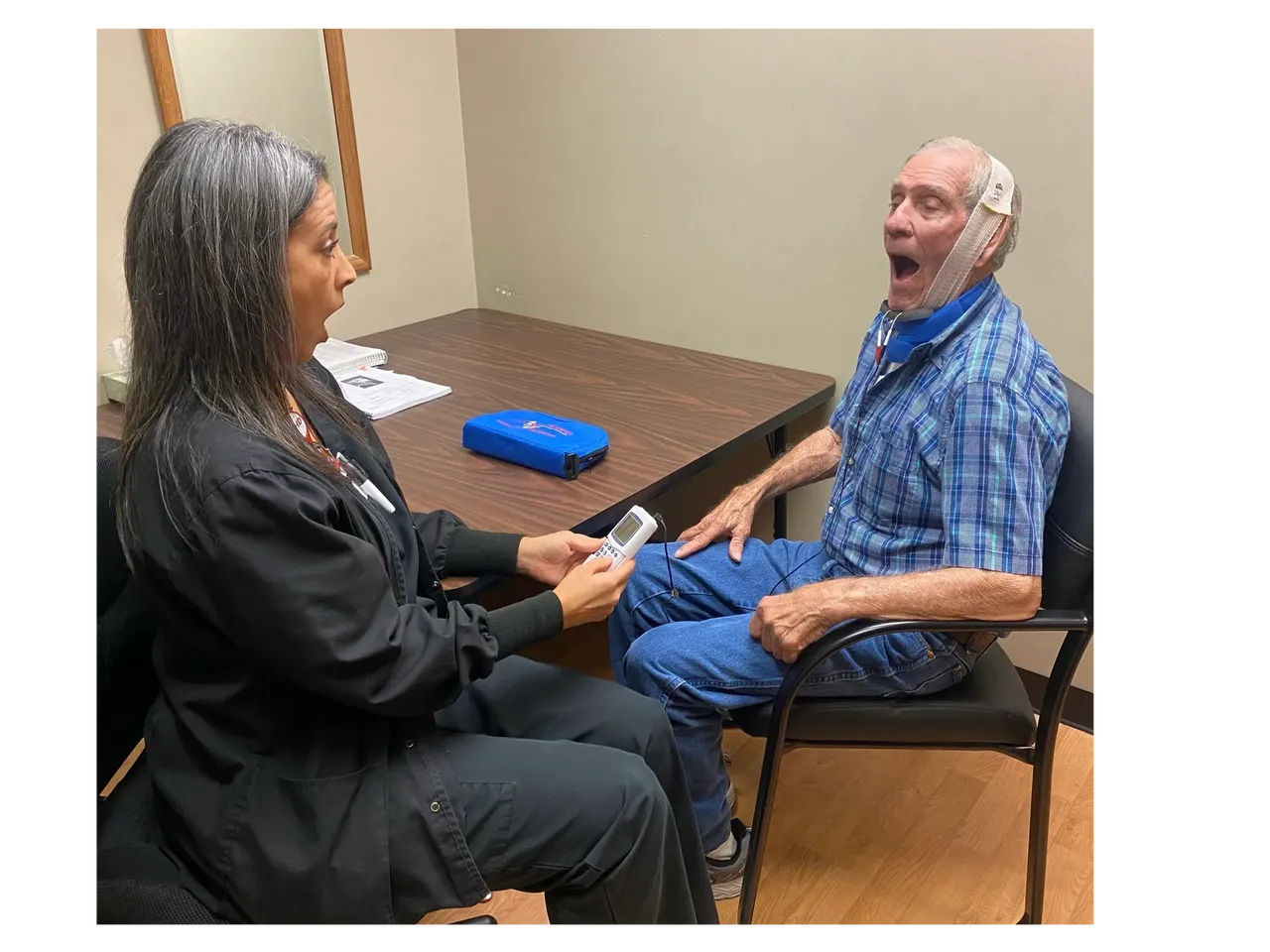
Wellness Center
We have a wellness center open 7 days a week to the public for a monthly membership fee. Included in your membership fee is a 50 minute orientation which includes blood pressure check, body measurements, and training on all gym equipment. We offer top of the line Cybex cardiovascular and strength training equipment.
Membership rates
$35-individual rate
$20-individual senior rate (over 60)
$49-family rate (includes spouse & children between 14-18 years)
$35-senior couple
There is a onetime registration fee of $50 for an individual membership and $75 for a family membership.
Operating Hours
Mon-Friday 5am-9:am am and 5pm-8pm
Sat: 7am-12pm
Sun: 12pm-5pm
940-759-6198
